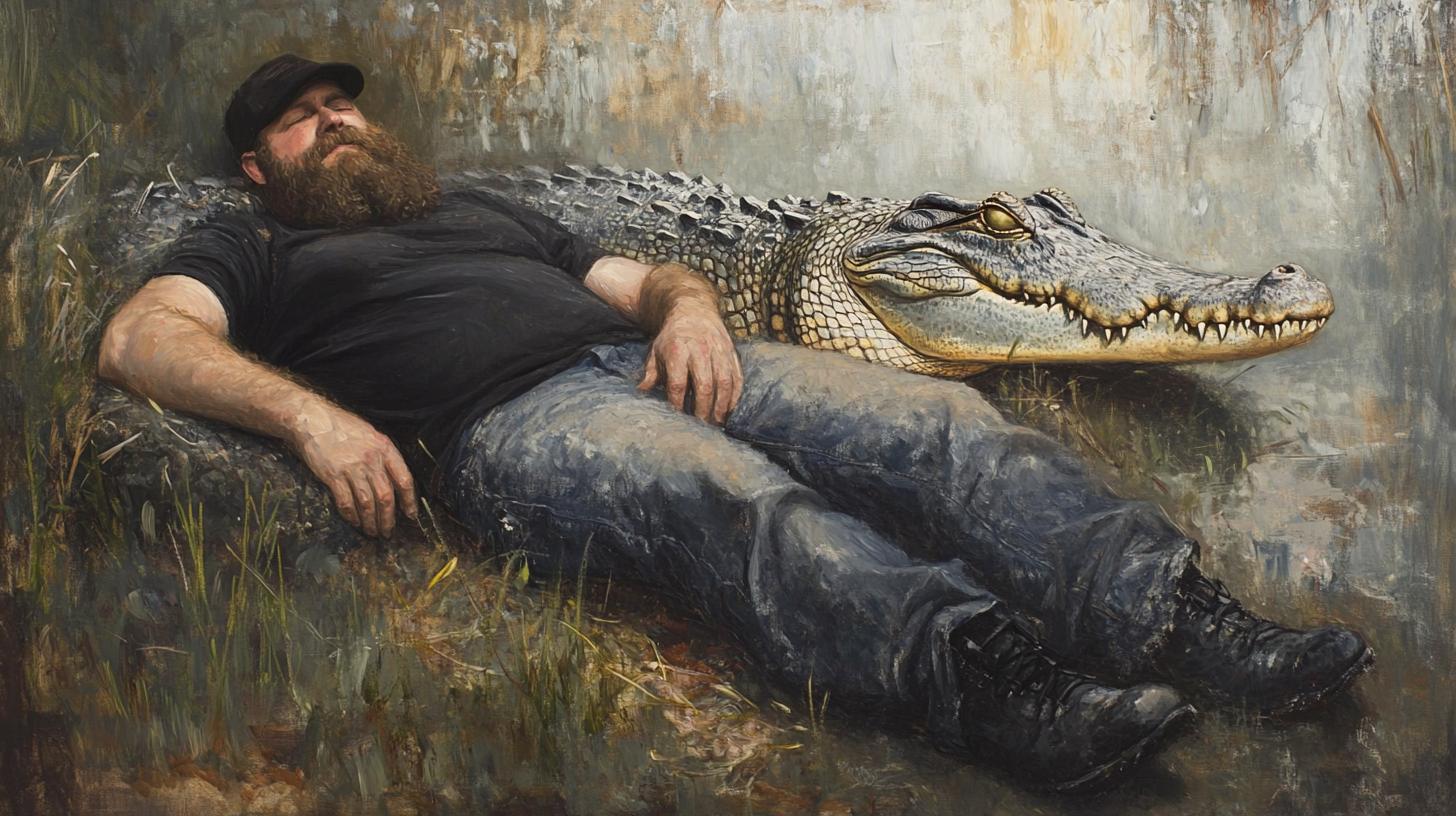Crocodiles Have Feelings Too
A grieving crocodile, a man in burnout, and the quiet dignity of allowing creatures to fall apart without rushing them back to productivity.

A Nile crocodile in captivity once refused to eat for three weeks after losing his mate to complications during egg laying. The older male was known for being solitary, aggressive, and territorial. But in the weeks following his mate's death, he changed. He stopped feeding. He no longer responded to his handlers. He withdrew.
His zookeepers were worried, but the lead herpetologist told them to wait. "He’s grieving," she said. "Let him grieve."
That moment has stuck with me.
It wasn’t the crocodile that got me. It was the herpetologist’s response. The calm, clinical recognition that a creature - one we typically regard as mindless and primitive - was in pain, and that the correct response was to not intervene. To let the creature hurt. To not try and fix it. To simply witness the collapse and allow the process to unfold.
I have been the crocodile for the last year.
Not in a metaphorical way. Literally. I have laid in a dark room, unresponsive. I have stopped performing. I have ignored those closest to me. I have withdrawn from everything that once mattered. And I have done it not because I wanted attention or because I lacked resilience, but because I was in grief. Not the kind that earns flowers or casseroles or cards, but the kind of grief that modern life doesn’t recognize. The slow, compounding, soul-warping kind. The grief of burnout. The grief of disillusionment. The grief of failure. The grief of living in contradiction with your own values for so long that your nervous system finally taps out.
But I didn't have a compassionate herpetologist saying “let the crocodile grieve.”
Instead, I found myself living in a new city, surrounded by exhausting strangers & fair-weather friends.
They said, “He’s isolating.”
They said, “He needs to get back out there.”
They said, “He’s hit rock bottom.”
They said, “He’s not showing up.”
We do not treat people with the same compassion that herpetologists treat crocodiles.
We pathologize the collapse. We treat it as a failure of character. We try to diagnose, to fix, to re-engage, to optimize. We assign it labels, productivity scores, treatment plans. We try to put it in a 12 step program. We see pain as a bug in the system rather than a signal from it.
And what kills me is this: when the crocodile at the zoo stopped performing for the tour groups, no one tried to force him to.
No one said, “You really have nothing to complain about, things could be so much worse.”
No one said, “You should let go of the past and be more present.”
No one said, “You need to start volunteering at a food bank so you can get some perspective.”
They just let him grieve. They knew that the only thing he really needed was a witness.
Why do we extend more grace to a crocodile than we do to each other?
Why do we only recognize suffering when it wears the mask of tragedy we’re comfortable with?
Why does it feel so radical to admit that something inside us has died - even when the outside still walks and talks and types Slack messages and spends 43 minutes a day asking "can you guys hear me ok" on Zoom calls?
What would it mean to stop treating grief as a productivity issue?
What would it mean to allow people - and ourselves - to stop being performative, to go still, to shut down, to disappear into the dark for a while?
I don’t have a clean ending for this piece. Just a lingering hope:
That one day, when someone you love collapses quietly in the corner of the enclosure, you’ll remember the crocodile. And you’ll know the most radically useful thing you can do is have the humility to just be a witness.
To let the suffering creature know that there's a friendly presence close by.
To stop trying to diagnose, fix, label, prescribe, advise.
To stop pathologizing grief, just because it makes you feel a lil' uncomfortable about your own.